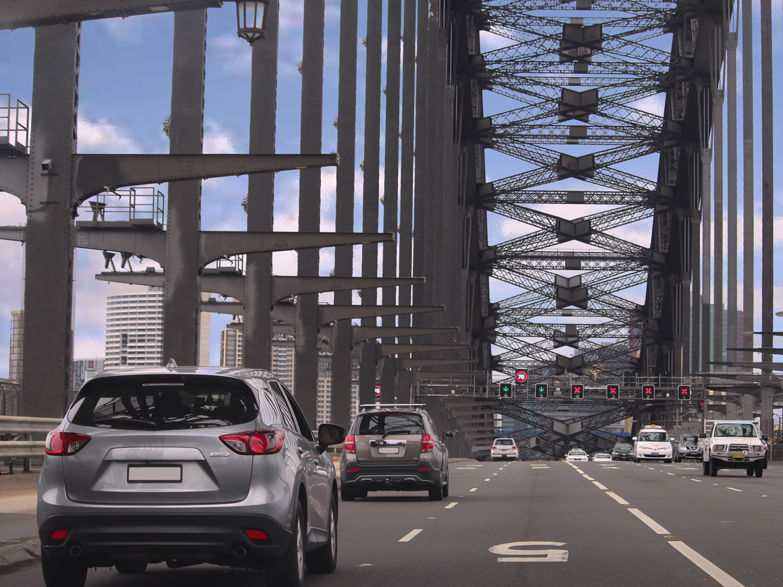Originally published in the Law Institute Journal
Snapshot:
- Government, TAC and lawyers came together to produce improvements for injured road users.
- All cyclists injured in car accidents are now covered for TAC benefits.
- Injured cyclists’ benefits are retrospective to 9 July 2014.
- Travel and accommodation for families of the injured has increased to $20,000.
- Attendant care services have increased for injured road accident victims.
- Injured cyclists can lodge claims now.
Introduction
The Treasury and Finance Legislation Amendment Act 20181 contains changes that will be of enormous benefit to some injured cyclists and other accident victims. It came about because of trusted consultation between the policy division of the Transport Accident Commission (TAC), the state government and a small number of plaintiff lawyers practising in the transport accident injury area of law.
The past
For more than 20 years, the TAC had convened a legal stakeholders’ group which met quarterly.2 It was a conduit for the TAC to disseminate information to the profession and to hear matters that plaintiff lawyers believed were important to the operation of the scheme. On many occasions, however, changes were made to the Transport Accident Act (TAA) by the state government of the time without prior consultation or notice being provided to the lawyers assisting the injured.
This often caused disharmony within the different representatives but also public criticism of the effect of some changes. Plaintiff lawyers, on occasion, would also highlight what appeared to be unintended consequences.
Legislative Working Group
On 18 May 2015 the TAC, with the endorsement of the state government, invited 11 plaintiff lawyers to meet with the policy advisers and legal managers within the TAC to discuss possible legislative change. The basis of the invitation was that all discussions were required to be confidential and remain that way until made public by the TAC. The state government engaged independent chair Brian Tee to conduct the meetings.
This show of trust followed considerable negotiation between a small group of lawyers and the TAC in the development of a set of protocols to be followed to resolve disputes and provide compensation prior to and without litigation.3
These protocols have been adopted by the majority of plaintiff personal injury practitioners and are encouraged by the courts.4
They have, in the main, been highly successful in reducing the time, expense and complications in providing assistance to the injured.
Cycling injury loophole
One of the areas highlighted at the Legislative Working Group was the apparent inconsistency in compensation being provided to cyclists.
The definition of a “transport accident” included collisions where cyclists:
- were hit by a car, tram, train or bus
- collided with an open or opening car door
- collided with a stationary vehicle while on the way to or from work.
This definition left cyclists who collided with stationary vehicles in all other circumstances outside travelling to work, without any assistance for their injuries.
This was starkly highlighted on 9 July 2014 when farmer Richard (Rory) Wilson hit a parked furniture truck while riding with friends in wet, windy conditions. His spinal cord was severely injured and he subsequently suffered two strokes. He was paralysed and required rehabilitation for his cognitive function. He discovered that no help was available from the TAC.
This loophole has now been closed through the passing of the Treasury and Finance Legislation Amendment Act 2018 which amends the definition of transport accident to include an incident involving a collision between a pedal cycle and a stationary vehicle. It has been dubbed “Rory’s Law”.5
Thorough consultation
To the credit of the state government and the TAC, the Legislative Working Group was not only consulted about the concept of the proposed “Rory’s Law” but the actual wording of that law and other proposed changes to the TAA.
The draft Bill was presented to the group and observations and discussions took place about difficulties that could arise within the wording. Further drafts were altered and improved so that these confidential discussions allowed the cabinet of the state government to consider changes that would work in theory and practice.
The trust shown in the representative solicitors has resulted in meaningful improvements to compensation for all road users.
Cycling event concerns
One concern from groups such as the Bicycle Network6 was the exclusion of TAC coverage for cyclists injured in organised races. As there are multiple club and community rides, a wide interpretation of the exclusion would have had far reaching unintended adverse consequences for the injured.
This, however, is not the case as the TAC, “Pedal Cycle Sport Accident Policy”7 makes it clear that only events that have been sanctioned by the Union Cycliste Internationale (UCI) will be excluded from TAC coverage. It is believed they would be events such as “The Herald Sun Tour”, “The Melbourne Warrnambool Bike race” and “The Tour Downunder”.
Retrospective
In an exception to the usual implementation of Acts of Parliament, the application of “Rory’s Law” will be retrospective to collisions from the day Mr Wilson was injured on 9 July 2014.8
Cyclists injured through colliding with parked cars since that date will now be able to lodge a claim with the TAC, even though they may be outside the time limits presented for lodging claims.9
This will necessitate the TAC reimbursing injured cyclists for medical expenses, lost wages and assessing their permanent impairment.
Further improvements
The amending Act also makes a number of changes to the TAA arising from Legislative Working Group discussions.
The definition of “member of the immediate family” will now include grandparents.10 This will allow counselling, travel and accommodation expenses to be provided to grandparents in certain circumstances. As our community increasingly relies upon grandparents to support the modern family, this change is a realisation of that role. The amount payable to immediate family members for travel and accommodation expenses has also been increased from a maximum total of $10,000 to $20,000.11
Where a death has resulted from a transport accident, dependent children are provided for under the TAC scheme.12 An unfortunate omission was support for children who were apprentices, even though full-time students were supported. This has now been remedied by the inclusion of “apprentice” in the definition of “dependent child”.13
No five yearly reviews
There has been an unsettling provision in the TAA which provides for a review of an injured person’s entitlement to Loss of Earning Capacity benefits every five years.14 This only applied to the most seriously injured who had an impairment level of 50 per cent or greater.15 This would cause enormous distress to the badly injured who could undergo an extensive round of medical examinations to investigate the level of impairment. Sensibly, it has been recognised that it was often a futile exercise that often detrimentally affected the claimant.
This strict requirement has now been removed from the TAA and the TAC now has a discretion to review the level of impairment.
Parents’ lost wages
Parents of a dependent child admitted to hospital because of road accident injuries will now be reimbursed for loss of wages after the first five days of visiting their child in hospital. The amount claimable has a maximum pool of $10,000.16 Unfortunately, determining who is to receive what portion of the $10,000 may become complex where there are separated families and parents and step-parents.
Future
The amendments contained in the Amending Act are a great step forward for people injured on our roads. The process through which the changes came about involved mutual trust between the legal profession, the TAC and the state government. It can only be hoped that this far-sighted initiative can be repeated for the future good of the community.
1 Commenced 26 September 2018.
2 Legal Liaison Group consists of representatives of plaintiff law firms and TAC representatives.
3 2005 and 2016 Transport Accident Act Protocols.
4 Supreme Court fast track pilot Motor Vehicle Accident Damages Proceedings: County Court Common Law Practice Note.
5 Geelong Advertiser, 7 June 2018.
6 Concerns raised by Bicycle Network CEO on 8 June 2018.
7 TAC, “Pedal Cycle Sport Accident Policy” on TAC website.
8 TAA, s233.
9 Note 8 above.
10 Treasury and Finance Legislative Amendment Act 2018 (Vic), s 3(1)(b).
11 Treasury and Finance Legislative Amendment Act 2018 (Vic), s 12(3).
12 TAA, s59.
13 Treasury and Finance Legislation Amendment Act 2018 (Vic), s3(1)(a).
14 TAA, s55(2)(b).
15 Note 14 above.
16 Treasury and Finance Legislation Amendment Act 2018 (Vic), s12.


